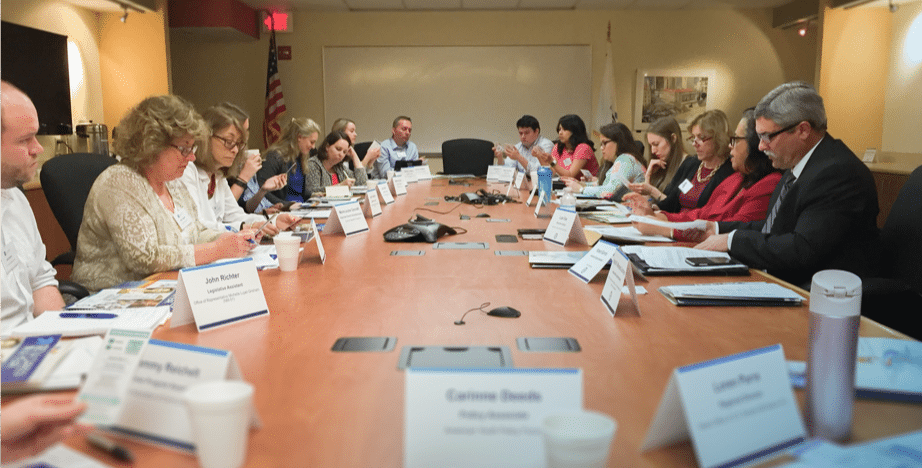Overview
Last year, the nation’s high school graduation rate reached a record high of 82.3 percent. Despite this progress, however, data show that there is still work to be done to ensure that students with the highest risk of dropping out have access to high-quality alternative educational opportunities that adequately prepare them for college, careers, and life. As states and districts across the country aim to create a robust set of educational options including alternative settings, they must be able to effectively collect and use the most relevant and reliable data to develop accountability systems. These systems should be responsive to the needs of students educated in alternative settings. In this webinar, presenters explored the challenges and opportunities of accountability for alternative education, along with promising practices from states and districts who have developed accountability measures and systems that are inclusive of all students in all types of educational settings.
Presenter Biographies
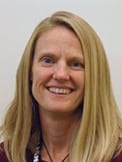 Carla Gay has nearly 20 years of experience working with students who have disengaged from school before completing their secondary education. She began her career as a teacher in Nevada, working as a reading specialist with elementary aged students and struggling high school students. After spending some time living in Africa, she returned to earn her Master of Social Work degree with an emphasis in social and economic development. She studied Spanish in Central America and then settled in Portland, Oregon to begin working with at-risk young people in the education field. She is passionate about building equitable education systems which offer a range of rigorous, engaging programming for ALL students. Carla spent the last nine years working on the outreach, re-engagement, and alternative school options for disconnected youth in Portland Public Schools. Additionally she has led local and statewide efforts to create systems for alternative accountability, reengagement, and early interventions. She has recently begun a new role as the Director of Early Warning Systems for the PPS District. Carla holds a Master of Social Work from Washington University in St. Louis, MO and an Administrator’s License from Portland State University. In her spare time, Carla enjoys spending time with her family, playing in the outdoors, reading, and traveling. She lives with her wife and their two children in Portland.
Carla Gay has nearly 20 years of experience working with students who have disengaged from school before completing their secondary education. She began her career as a teacher in Nevada, working as a reading specialist with elementary aged students and struggling high school students. After spending some time living in Africa, she returned to earn her Master of Social Work degree with an emphasis in social and economic development. She studied Spanish in Central America and then settled in Portland, Oregon to begin working with at-risk young people in the education field. She is passionate about building equitable education systems which offer a range of rigorous, engaging programming for ALL students. Carla spent the last nine years working on the outreach, re-engagement, and alternative school options for disconnected youth in Portland Public Schools. Additionally she has led local and statewide efforts to create systems for alternative accountability, reengagement, and early interventions. She has recently begun a new role as the Director of Early Warning Systems for the PPS District. Carla holds a Master of Social Work from Washington University in St. Louis, MO and an Administrator’s License from Portland State University. In her spare time, Carla enjoys spending time with her family, playing in the outdoors, reading, and traveling. She lives with her wife and their two children in Portland.
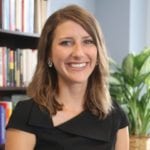 Carinne Deeds joined AYPF in June 2015. Her role as Policy Associate involves the development of learning events and products, including forums, study tours, webinars, discussion groups, and publications, as well as the dissemination of policy and practice guidance to multiple audiences. Before joining AYPF, Carinne served as the Bryna and Henry David Fellow at the Ray Marshall Center for the Study of Human Resources, using research to inform programs and policies related to college and career readiness in Central Texas. She has also developed and implemented educational programming for various nonprofits and afterschool programs in the U.S. and West Africa. Prior to her work with nonprofits, Carinne was a kindergarten English teacher in Bangkok, Thailand and an ESL instructor in Austin, Texas. Carinne holds a Bachelor’s degree in Communication Studies from The University of Texas at Austin and a Master of Public Affairs degree from the Lyndon B. Johnson School of Public Affairs at UT Austin.
Carinne Deeds joined AYPF in June 2015. Her role as Policy Associate involves the development of learning events and products, including forums, study tours, webinars, discussion groups, and publications, as well as the dissemination of policy and practice guidance to multiple audiences. Before joining AYPF, Carinne served as the Bryna and Henry David Fellow at the Ray Marshall Center for the Study of Human Resources, using research to inform programs and policies related to college and career readiness in Central Texas. She has also developed and implemented educational programming for various nonprofits and afterschool programs in the U.S. and West Africa. Prior to her work with nonprofits, Carinne was a kindergarten English teacher in Bangkok, Thailand and an ESL instructor in Austin, Texas. Carinne holds a Bachelor’s degree in Communication Studies from The University of Texas at Austin and a Master of Public Affairs degree from the Lyndon B. Johnson School of Public Affairs at UT Austin.
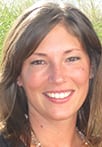 Jennifer DePaoli is the Senior Education Advisor at Civic Enterprises, managing the organization’s education research portfolio on a range of issues related to ensuring more students successfully graduate from high school. At CE, she is a co-author of the annual Building a Grad Nation, as well as for other reports and issue briefs in the Grad Nation portfolio. Prior to joining Civic Enterprises, Jennifer served as an education policy researcher at Policy Matters Ohio, a state policy think tank, where she worked on state K-12 education policy analysis. In this role, she authored Misleading Measurements, a report on highly rated urban public schools in Ohio and co-authored Avoiding Accountability, a report on charter school closure law in Ohio. Jennifer also brings with her nearly a decade of experience teaching at the university and elementary/middle school levels. Jennifer earned her Ph.D in Education Policy from Ohio State University, where she focused on state- and district-level K-12 education policy. She also holds a Master’s in Middle Childhood Education and a B.A. in Communications from the University of Dayton.
Jennifer DePaoli is the Senior Education Advisor at Civic Enterprises, managing the organization’s education research portfolio on a range of issues related to ensuring more students successfully graduate from high school. At CE, she is a co-author of the annual Building a Grad Nation, as well as for other reports and issue briefs in the Grad Nation portfolio. Prior to joining Civic Enterprises, Jennifer served as an education policy researcher at Policy Matters Ohio, a state policy think tank, where she worked on state K-12 education policy analysis. In this role, she authored Misleading Measurements, a report on highly rated urban public schools in Ohio and co-authored Avoiding Accountability, a report on charter school closure law in Ohio. Jennifer also brings with her nearly a decade of experience teaching at the university and elementary/middle school levels. Jennifer earned her Ph.D in Education Policy from Ohio State University, where she focused on state- and district-level K-12 education policy. She also holds a Master’s in Middle Childhood Education and a B.A. in Communications from the University of Dayton.
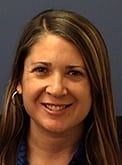 Jessica Knevals joined the Accountability and Data Analysis Office as a Principal Consultant at the Colorado Department of Education (CDE) in 2012. Through her work at CDE, Ms. Knevals is responsible for managing policy and data analysis projects associated with SB163, the Colorado Education Accountability Act, including longitudinal growth, accreditation, and accountability, including production and release of the district and school performance frameworks issued to all districts and schools in Colorado, the request to reconsider process for the reconsideration of district and school performance framework ratings, and the alternative education campus accountability process. Ms. Knevals also has prior work experience with the Citizens Committee for Children of New York City (CCC), and the Boys and Girls Clubs of America (BGCA). Ms. Knevals received her M.P.A. in Public and Nonprofit Management and Policy from the Robert F. Wagner Graduate School of Public Service at New York University and a dual B.A. in Public Affairs and Sociology from the Maxwell School of Public Affairs and the College of Arts and Sciences at Syracuse University.
Jessica Knevals joined the Accountability and Data Analysis Office as a Principal Consultant at the Colorado Department of Education (CDE) in 2012. Through her work at CDE, Ms. Knevals is responsible for managing policy and data analysis projects associated with SB163, the Colorado Education Accountability Act, including longitudinal growth, accreditation, and accountability, including production and release of the district and school performance frameworks issued to all districts and schools in Colorado, the request to reconsider process for the reconsideration of district and school performance framework ratings, and the alternative education campus accountability process. Ms. Knevals also has prior work experience with the Citizens Committee for Children of New York City (CCC), and the Boys and Girls Clubs of America (BGCA). Ms. Knevals received her M.P.A. in Public and Nonprofit Management and Policy from the Robert F. Wagner Graduate School of Public Service at New York University and a dual B.A. in Public Affairs and Sociology from the Maxwell School of Public Affairs and the College of Arts and Sciences at Syracuse University.
Kirsten Plumeau is the Director of Alternative Schools with Portland Public School District in Portland, Oregon. Working in education for 25 years, she currently oversees twelve alternative schools that contract with the district to serve at-promise youth. She supports local efforts in alternative accountability and advocates for providing alternative options for students. Kirsten earned both her Bachelor’s Degree in Psychology and Master’s Degree in Education from the University of Portland.



